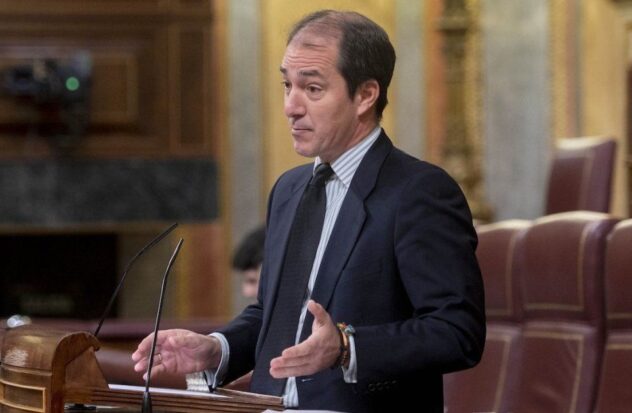MADRID.- The Spanish journalist and former MP of the VOX party, Victor Gonzalez Coellofiled a formal complaint with the Spanish authorities after being kidnapped and deported by the Venezuelan police. The events, which took place on July 27, 2024 in Caracas, occur in a context of high political tension, prior to the presidential elections in Venezuela.
According to the complaint, González Coello was in the lobby of the La Castellana Renaissance Hotel in Caracas around 10:00 a.m., when he was approached by Venezuelan police officers who asked for his passport. After handing it over, he was escorted to his room to collect his luggage. “At no time did the police tell me the reason for what had happened, except that I had to accompany them,” González Coello said.
He was then taken to the basement of the SEBIN (Bolivarian National Intelligence Service). Once there, one of the police officers told him: “You are not detained, nor held,” to which González Coello responded by asking for his passport and expressing his desire to leave. However, he was told that he could not do so.
During his arrest, they demanded the passwords for his phone and tablet. When he refused, the officers began to cover both the window of his cell and the surveillance camera, demanding that he strip. “If you don’t give me the passwords for the phone, we’re going to kill you. There are people here who haven’t left,” they told him, which led González Coello to hand over the passwords for fear of his physical safety.
González Coello was questioned for about six hours about who he had met in Venezuela and who he had gone to see. “They repeatedly and specifically asked me about the Spanish reporter Cake Vinuesa, as well as another Spaniard I had just met at the hotel called Andrés,” he said.
He was eventually escorted back to Spain on a flight, being filmed for almost the entire journey and being kicked at times when he was not being filmed. “They told me: ‘Get out of Venezuela, you fucking Spaniard, you know what will happen to you if you come back,’” González Coello said. In addition, his electronic devices were formatted and his personal accounts and social networks compromised.
González Coello expressed his fear of possible reprisals against the people mentioned during the interrogation. “I want to state that the people who detained me have full access to all my contacts, including the leaders of the opposition to the Venezuelan regime,” he said.
Mass deportations
Venezuelan authorities have blocked the entry of several former governors, deputies and parliamentarians who planned to observe the presidential elections. In these elections, Nicolás Maduro faces as his main rival the diplomat Edmundo González Urrutia, 74 years old, who is competing on behalf of the disqualified opposition leader María Corina Machado.
Panamanian President José Raúl Mulino denounced that Venezuela prevented the takeoff of a Copa Airlines flight that was to transport several former leaders from Panama. Among those affected were former leaders Mireya Moscoso (Panama), Vicente Fox (Mexico), Miguel Ángel Rodríguez (Costa Rica) and Jorge Quiroga (Bolivia), all members of the Democratic Initiative of Spain and the Americas (IDEA Group), a right-wing organization critical of the Maduro regime.
In addition, around ten members of parliament and MEPs from the Spanish Popular Party (PP) reported having been deported when trying to enter Venezuela. A parliamentarian from Colombia and another from Ecuador suffered a similar fate.
Diosdado Cabello, an influential Chavista leader, had warned that these observers would be denied entry because they had not been invited by the electoral authority. According to Nicolás Maduro, the National Electoral Council (CNE) invited 910 observers from 100 countries.
Former Argentine President Alberto Fernández, who had been invited by the CNE, was asked this week by the organization not to travel to Venezuela due to statements in which he said that if Maduro is defeated in the elections “what he has to do is accept.” The CNE also cancelled an invitation for a mission of observers from the European Union.
This situation reflects the growing tensions and challenges facing the electoral process in Venezuela, with a regime that maintains strict control over international supervision of the elections.
Source: EDITORIAL / AFP


